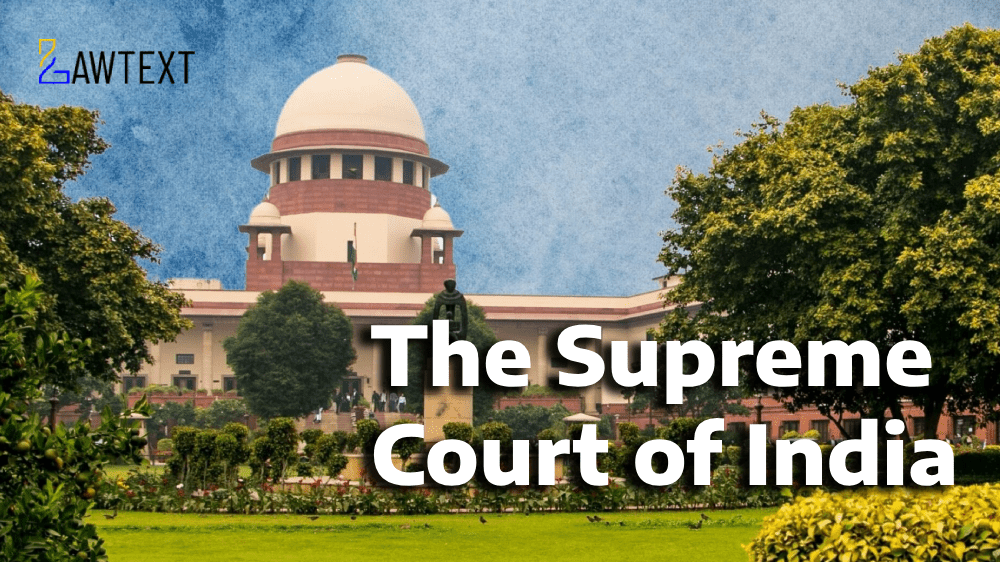Supreme Court Validates Sub-Classification of Scheduled Castes in Landmark Judgment. Upholding Equality Within Equality: Supreme Court Endorses State's Power to Sub-Classify Scheduled Castes for Targeted Reservation.

CASE NOTE & SUMMARY
The Supreme Court of India, in a significant ruling, has upheld the constitutionality of sub-classifying Scheduled Castes for the purpose of reservation. The judgment addresses whether states have the authority to create sub-categories within the Scheduled Castes to ensure that reservation benefits are equitably distributed among the most marginalized within these communities. The Court ruled that such sub-classification is permissible under the Constitution, provided it aims to ensure equality within the framework of substantive equality.
1. Background
- The case primarily revolves around the constitutional validity of sub-classification of Scheduled Castes for the purpose of reservation. The issue was whether states could create sub-categories within the Scheduled Castes to ensure equitable distribution of reservation benefits.
2. Constitutional Provisions and Historical Context
- Article 14 (Equality before Law), Article 15(4) (Special provisions for socially and educationally backward classes), and Article 16(4) (Reservation in public employment) were discussed extensively. The court delved into the historical context and the genesis of reservations for Scheduled Castes.
3. Key Legal Precedents
- The judgment examines past rulings, including the Indra Sawhney case and the EV Chinnaiah case, which questioned the constitutionality of such sub-classifications.
4. Submissions by the Parties
- The petitioners argued that sub-classification violated the principle of equality, while the respondents contended that it was necessary to achieve true equality within the Scheduled Castes by targeting the most deprived.
5. Court’s Analysis
- The court analyzed whether the sub-classification is consistent with the principles of equality and the intent of the constitutional provisions. It discussed the jurisprudence on reservation, the efficiency of reservation, and the interplay of Articles 16 and 335.
6. Conclusion
- The court concluded that sub-classification of Scheduled Castes is constitutionally permissible as long as it aims to achieve substantive equality by addressing inter-se disparities within the Scheduled Castes.
ISSUE OF CONSIDERATION
The State of Punjab & Ors. Versus Davinder Singh & Ors.
Citation: 2024 LawText (SC) (8) 4
Case Number: Civil Appeal No. 2317 of 2011 With C.A. No.6936 of 2015 With C.A. No.5597 of 2010 With W.P.(C) No. 21 of 2023 With C.A. No.5593 of 2010 With S.L.P.(C) No.30766 of 2010 With S.L.P.(C) No. 8701 of 2011 With S.L.P.(C) Nos.36500-36501 of 2011 With T.C.(C) No.38 of 2011 With T.P.(C) No.464 of 2015 With W.P.(C) No.1477 of 2019 With C.A. No.5586 of 2010 With C.A. No.5598 of 2010 With C.A. Nos. 5595-5596 of 2010 With C.A. No.2324 of 2011 With T.C.(C) No.37 of 2011 With C.A. No.5589 of 2010 With C.A. No.5600 of 2010 With C.A. No.5587 of 2010 With S.L.P.(C) Nos.5454-5459 of 2011 With C.A. No.2318 of 2011 With C.A. No.289 of 2014 And With W.P.(C) No.562 of 2022
Date of Decision: 2024-08-01
Case Title: The State of Punjab & Ors. Versus Davinder Singh & Ors.
Before Judge: [ D.Y. Chandrachud; CJI, Manoj Misra, B.R. Gavai, Vikram Nath, Bela M. Trivedi, Pankaj Mithal, Satish Chandra Sharma ]
Appellant: The State of Punjab & Ors.
Respondent: Davinder Singh & Ors.

